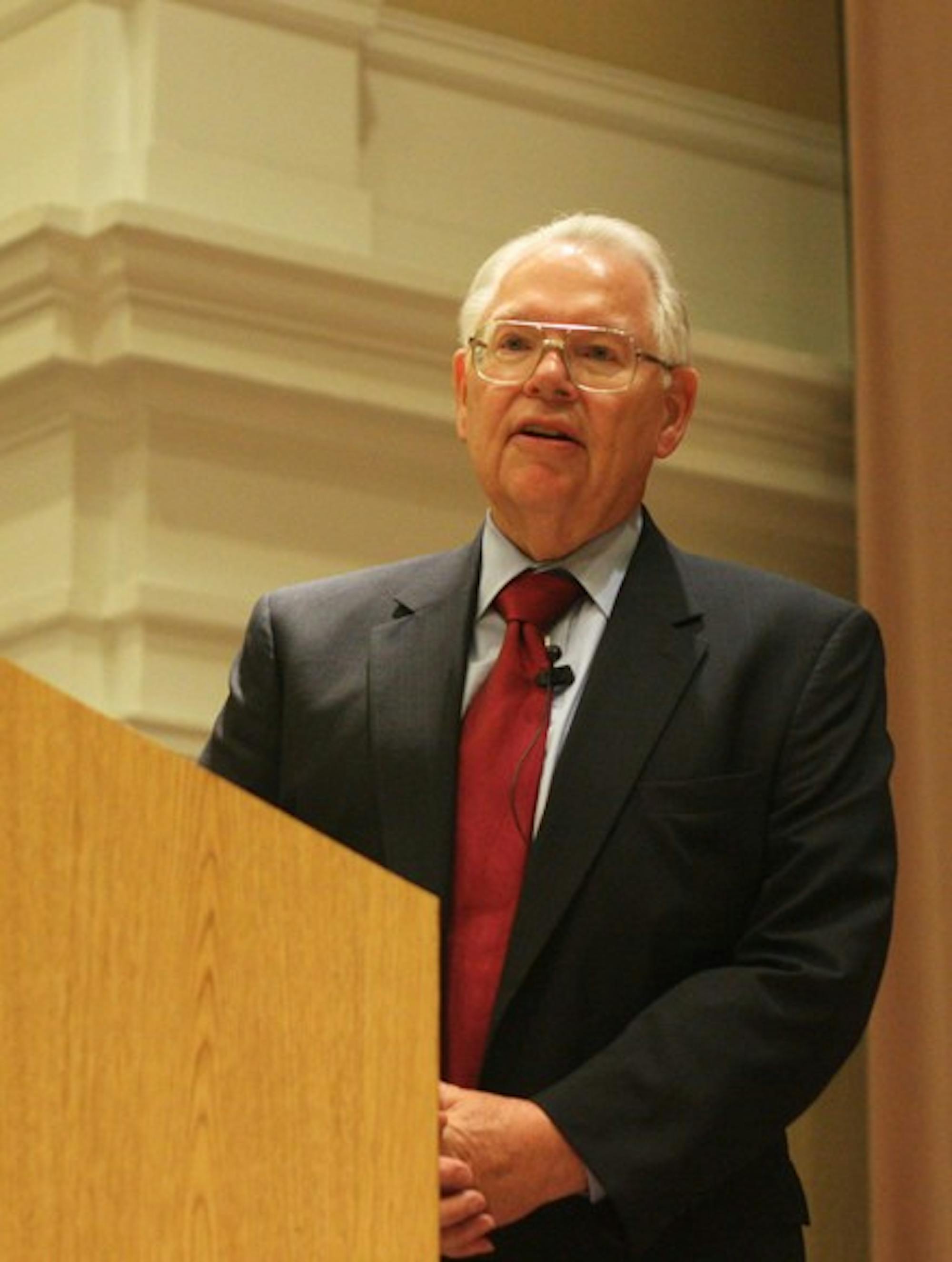Medvedev has outlined a set of priorities that deviate from Putin's policies, Collins said. The new president's rhetoric includes "serving the citizen" and is directed towards Russia's emerging property-owning middle class, which Collins said has become increasingly important in Russian politics.
"There is a mood in Moscow today that it is somehow time to change things," Collins said.
Medvedev has made notable efforts to strengthen the Russian judiciary, such as calling for an independent judicial system, Collins said. Based on conversations he had with judges in St. Petersburg, Collins said it appears that the courts are already gaining legitimacy in the eyes of the public. Every year, the judges' case loads grow as citizens turn to the judiciary to resolve day-to-day problems and complaints against the Russian bureaucracy, Collins said.
"Who would have thought 10 years ago that a Russian would say, 'If I have a problem, I'll go to court'?" Collins asked, to audience laughter.
Collins said he views the judiciary as one of the few aspects of Russian government in which the population demands service "from below," rather than accepting the mandates of the Russian government.
Answering an audience member who inquired about the future of the Putin-Medvedev relationship, Collins gave concrete examples of Medvedev's powers that are independent of Putin's influence. For instance, Medvedev alone has the codes for Russia's nuclear weapons, making him the undeniable commander-in-chief, Collins said.
The Putin-Medvedev arrangement -- in which Putin became prime minister and handpicked Medvedev as his successor as president -- was designed to be constitutional, as well as a signal of continuity with the past, Collins said. Given the choice, the Russian people would probably have preferred not to have a presidential election last year, Collins said. The collective desire of the people, he said, was to maintain the status quo established by Putin, creating a constitutional dilemma, as Putin was ineligible for re-election, Collins said.
Collins conceded that to some extent, Medvedev will have to follow what Collins called the "Putin paradigm" -- economic modernization and traditional authoritarianism balanced against a relatively new degree of freedom for the Russian people.
Collins drew upon the relevance that Russian policy changes to the U.S. Russia exports more oil and natural gas than any other country in the world, and its nuclear capabilities and seat on the United Nations Security Council tie its security interest to the U.S.
"[Russia] is not just an issue, it's a society, and it's not just a problem, it's a country with which we will have to live," Collins said.
The relationship between Russia and the United States needs attention, Collins said, adding that the relationship has been "scratchy" during the administration of President George W. Bush. He said he does not foresee the two countries becoming enemies or a return of the Cold War, but said the two states could increase efforts toward cooperation.
"If we don't rethink vis-a-vis each other, we'll miss opportunities and have a counterproductive time over the next few years," Collins said.
Collins offered recommendations on how the United States and Russia could improve their relationship. Most importantly, he said, the two countries need to approach each other with realistic expectations.
"It's logical we won't see eye-to-eye all the time, Collins said. "That's normal, and it would be helpful to accept it."
Collins added that it would be unrealistic to expect Russia and the United States to become strategic partners, and people should not confuse a general strategic partnership with collaboration on specific strategic projects, such as a new nuclear system.
With indication that Medvedev could lead Russia in a new direction, the Russian people's continued support for Putin and the various policies the United States could adopt towards Russia, Collins said that nothing about Russia's future is certain.
"The great parlor game in Moscow is trying to figure out just how all of this is going to work," he said.
Collins's lecture, titled "Russia After Putin: More of the Same or a New Phase," is part of the Dickey Center's Great Issues series. The series brings a prominent speaker to campus each term to address a major international theme, according to Kenneth Yalowitz, director of the Dickey Center. Collins is currently senior associate and director of the Russia and Eurasia Program and diplomat in residence at the Carnegie Endowment for International Peace.
The lecture was funded by William Obenshain '62 Tu'63.




